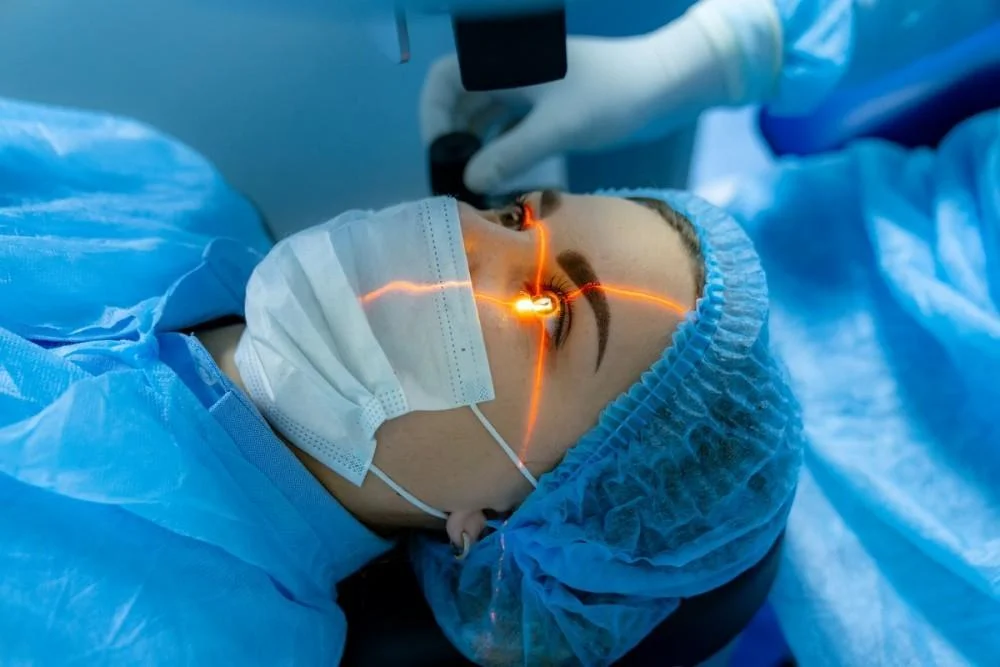About half of white adults in the United States have cataracts by the time they’re 75 years old. By age 80, that number swells to 70%, and 53% of African Americans and 61% of Hispanic Americans have joined their ranks.
Cataracts don’t improve on their own. The only way to resolve them is to remove the eye’s cloudy lens and replace it with an artificial lens.
At Eye Associates of Monmouth in Colts Neck, New Jersey, expert ophthalmologist John Ghobrial, MD, specializes in cataract surgery, including laser surgery. He also helps you select the right artificial lens for your needs.
If you have cataracts, you probably have a lot of questions about cataract surgery and what happens after your procedure. Following are a few tips to help aid in your recovery.
Use your eyedrops
After your surgery, Dr. Ghobrial gives you antibiotic and anti-inflammatory eye drops that you must apply for several weeks. Please don’t use any other type of eye drops.
Your eyes may feel gritty or irritated for the first few days. You may also notice that your eyes are red or bloodshot. Blurry or double vision is another possibility, but all of these concerns should resolve within a few days. If you still have symptoms after 4-6 weeks, let us know.
Give yourself a break
Avoid strenuous activities, such as going to the gym or running. That also means you get a pass on housework: Let someone else do the chores for the first days of your recovery.
Take the time to heal by giving yourself plenty of good, restorative sleep at night. De-stress with deep breathing or other relaxation techniques when needed.
Wear your eye shield
Be sure to wear your eye shield while sleeping for at least a week. You might otherwise unconsciously scratch or rub your eyes. Also wear your shield when you wash your hair. You don’t want water or soap to get into your eyes while they’re still healing.
Don’t wear eye makeup
Refrain from applying any type of eye makeup for an entire first month after your operation. Not only can the makeup itself get into and irritate your eyes, but if you’ve had the cosmetics for a while, they also could be full of bacteria.
Don’t drive or fly
Driving requires fully healed eyes and also requires that you’ve adjusted to your new lenses. Protect yourself and others by staying in the passenger seat until Dr. Ghobrial gives you the go-head.
Also don’t board an airplane without getting an OK from Dr. Ghobrial. The pressure in the plane cabin could adversely affect your recovery.
Protect your eyes when outdoors
You should always wear sunglasses when outdoors to shield your eyes from the degrading effects of UVA and UVB rays. This step is especially important after your cataract surgery.
You can also wear your eye shield when outdoors. Even eyeglasses are better than going bare-eyed so you can protect your eyes from dust and pollen.
Don’t swim
Even if you usually wear goggles when you’re in the water, stay out of the pool, lake, or ocean for 4-6 weeks. Chlorine in the pool and bacteria in natural waters could adversely affect your recovery.
Take the time to find new, low-key activities you enjoy for your daily exercise. You want to support your recovery, not stress your body with over-exertion.
Clean your eyes gently
The eye drops as well as the healing process may make your eyes feel sticky and slightly itchy. Gently cleanse your eyes 1-2 times a day with water that’s first been boiled, then cooled. Dip cotton in the water and gently swab your closed eyes from your nose to the outer corner. Don’t let the water get into your eyes.
Don’t rub your eyes … ever
Never rub or scratch your eyes after eye surgery, including cataract surgery. The eye drops may help control the itching to a degree, but if you’re very uncomfortable, let us know.
If you’re afraid that you may unconsciously scratch your eye, consider wearing your eye shield during the day, or use an old pair of glasses or non-prescription glasses.
Keep your appointments
We need to track your recovery to be sure your eye is healing on schedule. We also look for signs of infection or other problems so we can resolve them promptly and protect your eyes.
Once your recovery period is over, your vision is restored. Not only will you be free of the clouds from cataracts, your vision should be 20/20 in each corrected eye. You won’t need glasses or contacts anymore — unless you only had cataracts removed in one eye.
Are you ready for cataract surgery? Contact our friendly team at Eye Associates of Monmouth over the phone or via our online appointment request tool.


